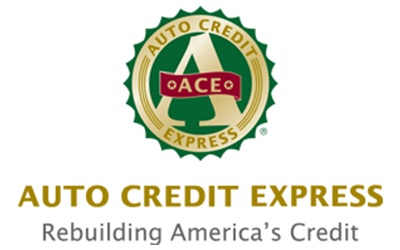Getting an auto loan with a competitive rate can mean the difference between an affordable monthly payment and overpaying by thousands over the life of the loan. Whether you have excellent credit or are working with a lower score, lenders offer options that fit different financial situations.
To help you make the best choice, we’ve broken down the top auto loans for 2025—starting with the best options for good credit, followed by the top picks for bad credit. Comparing rates and terms upfront can help you secure a loan that keeps more money in your pocket while getting you behind the wheel.
5 Best Auto Loans for Good Credit
If you have good to excellent credit scores, it will be much easier to find the best auto loan rates. Start with these options.
Consumers Credit Union
Consumers Credit Union (CCU) offers flexible auto loan options nationwide. Membership is open to everyone through a one-time $5 fee to the Consumers Cooperative Association.
PenFed Credit Union
PenFed Credit Union is known for offering some of the most competitive auto loan rates in the industry. Membership is open to anyone, making it accessible to a wide audience.
Bank of America
Bank of America offers auto loans for new and used vehicles, as well as refinancing options. Their loans come with competitive rates and flexible terms.
LightStream
LightStream offers competitive auto loans for new and used vehicles, catering to borrowers with good to excellent credit. Its flexible financing allows customers to buy from any dealer without restrictions on vehicle age or mileage.
Capital One
Capital One offers auto financing solutions for both new and used vehicles, providing a user-friendly online experience for potential borrowers.
5 Best Auto Loans for Bad Credit
Don’t let a poor or fair credit score stop you from looking for an auto loan. Here are some of the best auto loan companies that are willing to work with people with less than perfect credit.
Auto Credit Express
Auto Credit Express specializes in connecting borrowers with bad or limited credit to a network of lenders and dealerships willing to offer financing solutions.
CarsDirect
CarsDirect is an online platform that connects borrowers with a network of lenders and dealerships, specializing in assisting individuals with bad credit, no credit, or past bankruptcies
car.Loan
car.Loan is an online platform that connects borrowers with a network of dealerships specializing in financing individuals with no credit or bad credit.
myAutoLoan
myAutoloan is an online marketplace that connects borrowers with multiple lenders, offering a range of auto financing options including new and used car loans, refinancing, private party purchases, and lease buyouts.
Carvana
Carvana offers a fully online car-buying experience, providing financing options for a wide range of credit profiles. Borrowers can shop, finance, and have a car delivered—all from the comfort of their home.
What impacts your auto loan rate?
Auto loan rates aren’t set in stone. Lenders determine your interest rate based on several factors, and even small differences can add up to thousands over the life of a loan. Knowing what affects your rate can help you secure a better deal.
Credit Score Tiers and Interest Rate Impact
Your credit score plays the biggest role in determining your auto loan rate. Lenders use it to gauge risk, with higher scores leading to lower interest rates. Here’s a general breakdown of how credit scores affect rates:
- Excellent (740+): Qualifies for the lowest rates, often under 5%.
- Good (670-739): Still eligible for competitive rates, usually between 5-7%.
- Fair (580-669): Rates jump significantly, often 8-15%.
- Poor (Below 580): Expect rates above 15%, with fewer lenders offering approvals.
A strong credit score saves money by reducing interest costs. If your score needs work, improving it before applying can help secure a lower rate.
Other Key Factors That Affect Your Rate
Lenders look at more than just credit scores when setting loan terms. Here are some additional factors that can influence your auto loan rate:
- Loan Term Length: Longer terms often mean higher rates. A 72-month loan typically has a higher annual percentage rate (APR) than a 48-month loan because lenders take on more risk over time.
- Vehicle Type: New cars usually qualify for lower interest rates than used cars since they depreciate more predictably and have fewer mechanical risks.
- Down Payment: A larger down payment reduces the lender’s risk, often leading to a lower interest rate. Many lenders offer better terms if you put down at least 10-20%.
- Debt-to-Income Ratio (DTI): Lenders check your monthly income against your existing debt. A lower DTI signals that you can handle additional payments, which can lead to a better rate.
Auto loan rates can vary widely based on these factors, so it’s worth shopping around and getting prequalified with multiple lenders. Comparing offers ensures you get the best rate possible based on your financial profile.

How to Choose the Right Auto Loan for You
Finding the right auto loan isn’t just about getting the lowest rate. The lender you choose, the loan term, and hidden costs can all impact how much you end up paying. Here’s what to consider before locking in a loan.
Online Lenders vs. Banks vs. Credit Unions
Not all lenders operate the same way. Here’s a breakdown of the main options and their advantages:
- Online Lenders: Typically offer quick approvals and competitive rates. Great for borrowers who want a fast, digital-first process. However, some may have higher fees or stricter loan requirements.
- Banks: Provide stability and often offer discounts for existing customers. While rates can be competitive, the credit approval process may take longer, and minimum credit score requirements may be higher.
- Credit Unions: Tend to offer lower rates and more flexible terms, especially for members with fair or bad credit. Membership is required, but many credit unions have easy eligibility requirements.
Comparing offers from all three types of lenders can help you find the best balance of interest rates, repayment options, and customer service.
Pre-Qualification Matters
Checking your rate before you apply for an auto loan helps you avoid surprises. Many lenders offer pre-qualification, which allows you to see what you qualify for without affecting your credit score.
Pre-qualification gives you an estimate of your APR and loan amount, helping you compare lenders before committing. Once you’re ready to apply, a full application will result in a hard credit inquiry, which can temporarily lower your score.
Loan Term vs. Total Interest Cost
A lower monthly payment might sound appealing, but it can cost more in the long run. Longer loan terms (60+ months) reduce your monthly bill but increase the total interest paid over time.
For example:
- $25,000 loan at 6% APR for 48 months: Monthly payment = ~$587, total interest paid = ~$2,174.
- $25,000 loan at 6% APR for 72 months: Monthly payment = ~$415, total interest paid = ~$4,000.
The 72-month loan lowers your monthly cost but nearly doubles the interest paid. Choosing a shorter term saves money if you can afford the higher payments.
Hidden Fees and Total Loan Cost
Beyond the APR, watch out for hidden costs that can increase what you owe:
- Origination Fees: Some lenders charge a fee to process the loan.
- Prepayment Penalties: A fee for paying off your car loan early, preventing you from saving on interest.
- GAP Insurance Add-Ons: Some lenders push unnecessary add-ons like guaranteed asset protection (GAP) insurance or extended warranties at inflated prices.
Before signing, review the loan agreement carefully and ask for a breakdown of all fees. The goal is to secure a car loan with the lowest total cost, not just the lowest monthly payment.
Steps to Get the Best Auto Loan Offer
Securing the best auto loan offer isn’t just about finding the lowest interest rate. The process involves planning, comparing options, and avoiding common pitfalls. Follow these steps to get the best deal possible.
1. Check Your Credit Score
Before applying for a loan, check your credit score to understand what rates you might qualify for. Most lenders use credit-based pricing, meaning higher scores lead to lower interest rates.
- 740+ (Excellent): Best interest rates, often under 5%.
- 670-739 (Good): Competitive rates, usually 5-7%.
- 580-669 (Fair): Higher rates, often 8-15%.
- Below 580 (Poor): Limited options, with rates above 15%.
If your score is low, consider improving it by paying down debt and checking for errors on your credit report before applying.
2. Compare Lenders
Shopping around is the best way to avoid overpaying on your loan. Many lenders offer pre-qualification, which lets you check potential financing details with a soft credit pull that won’t affect your score.
- Compare banks, credit unions, and online lenders to see which offers the best rates and flexibility.
- Look at interest rates, repayment options, and fees to understand the full cost.
- Choose a lender that fits your budget and financing needs based on the offers available.
Pre-qualification helps you avoid unnecessary hard inquiries while securing the most favorable offer.
3. Set a Budget That Includes the Total Cost of Ownership
Your monthly car payment is just one part of the cost. A realistic budget should include:
- Loan payment – Based on the interest rate and loan term.
- Insurance – Newer cars and financed vehicles often require full coverage.
- Maintenance & repairs – Oil changes, tires, and unexpected repairs add up.
- Taxes & fees – Registration costs vary by state.
Lenders may approve you for more than you can comfortably afford, so focus on what fits your budget, not just what you qualify for.
4. Negotiate With Lenders and Dealers
If you have a pre-approved loan offer, use it to negotiate. Dealers often try to finance buyers through their network, but having an offer in hand gives you leverage.
- Compare dealer financing to your pre-approval. Some manufacturers offer special financing promotions.
- Negotiate interest rates and fees. Lenders may match or beat competitor offers.
- Look at total loan cost, not just monthly payments. A lower monthly payment with a longer term could cost more in the long run.
Being prepared gives you the power to choose the best financing option rather than settling for what’s offered.
5. Finalize Your Loan and Avoid Upsells
Before signing, carefully review the loan agreement to make sure there are no unexpected fees or unnecessary add-ons.
- Watch for hidden fees. Some lenders charge origination fees, early payment penalties, or processing fees.
- Be cautious of dealership upsells. Dealers may push extended warranties, GAP insurance, or service contracts at inflated prices.
- Confirm the final loan terms. Ensure the interest rate, monthly payment, and loan term match what you were originally quoted.
Once everything looks good, sign the loan agreement and complete your vehicle purchase.
Final Thoughts
Getting the best auto loan means more than just finding the lowest rate—it’s about choosing the right lender and loan terms for your budget. A little preparation can save you thousands over time.
Start by checking your credit score and comparing multiple lenders. Use pre-qualification to explore rates without impacting your credit, and factor in the total cost of ownership, not just the monthly payment.
Once you have a solid loan offer, negotiate with confidence and avoid unnecessary fees. Now, take the next step—compare lenders, get pre-qualified, and secure the most competitive financing.
Frequently Asked Questions
What credit score do I need for a low APR?
To qualify for the lowest auto loan rates, you’ll typically need a credit score of 740 or higher. Borrowers in this range often secure APRs under 5%. If your score falls below this, you may still get a competitive rate, but anything under 670 usually results in higher interest costs.
If your score is lower, improving it before applying—by paying down debt or correcting errors on your credit report—can help you secure a better rate.
Can I get a car loan with bad credit?
Yes, but expect higher interest rates and stricter loan terms. Lenders that specialize in bad credit auto loans may approve you with a score as low as 500-580, but rates can exceed 15-20% APR.
- Consider a larger down payment: This reduces the loan amount and improves approval chances.
- Look at credit unions or subprime lenders: Some lenders specialize in working with borrowers with lower scores.
- Apply with a co-signer: A co-signer with strong credit can help secure better terms.
How much should I put down on a car?
A down payment of at least 10-20% is recommended for the best financing options. While some lenders allow zero-down financing, putting money down reduces your car loan balance, lowers your monthly payment, and helps you avoid owing more than the car is worth.
If you have bad credit, a larger down payment can also improve your approval odds and help you qualify for a lower interest rate.
Is a 72-month loan a bad idea?
It depends on your budget and financial goals. A 72-month loan lowers monthly payments but costs more in interest over time. Longer loan terms also increase the risk of being upside down on your loan, meaning you owe more than the car’s value.
- Shorter-term loans (48-60 months): Reduce total interest paid and help build equity faster.
- Longer-term loans (72+ months): Keep monthly payments lower but cost more overall.
If you can afford higher monthly payments, choosing a shorter loan term will save you money in the long run.
What’s the best way to compare auto loan offers?
To find the best deal:
- Get pre-qualified: Check rates with multiple lenders without affecting your credit score.
- Compare APRs, not just monthly payments: A lower monthly payment on a longer loan may cost more in interest.
- Look for hidden fees: Origination fees, prepayment penalties, and add-ons can increase costs.
- Evaluate total loan costs: Factor in interest, fees, and the length of the loan before deciding.
Taking the time to compare offers ensures you get a loan that fits your budget without overpaying.













